news
Jonathan left N7trillion deficit for Nigeria – Buhari’s Transition Committee Chairman, Joda

Ahmed Joda, the Chairman of the transition committee put in place by President Muhammadu Buhari to interface with the former administration of President Goodluck Jonathan for a smooth handover of power on May 29, has stated that the former president left behind a N7 trillion liability. This figure contradicts claims by officials of the administration that the country’s debt profile stood at N1.3 trillion. Mr. Joda made the disclosure in an interview he granted the Daily Trust newspaper, published on Sunday. Mr. Buhari’s deputy, Yemi Osinbanjo, had said shortly before the handover of power that the new government would be inheriting a debt of $63 billion. However, the former Minister of Finance, Ngozi Okonjo-Iweala, promptly rose to the defence of Mr. Jonathan’s administration, saying of the $63 billion debt, the administration only incurred $21.8 billion. She also said the $63.7 billion cited by Mr. Osinbajo included multilateral and domestic loans by successive federal and state governments since 1960. Speaking on Sunday, however, Mr. Joda said, “We were told at the beginning of the exercise that the government was in deficit of at least N1.3 trillion and by the end people were talking about N7 trillion; everything is in a state of collapse. “The civil service is bloated and the military and police, if you are a Nigerian, you know what they have been facing for a long time; everywhere is in a mess and these things have to be fixed”. The former Federal Permanent Secretary said he had always wondered what would have been the fate of the country had Mr. Jonathan and his party, the Peoples Democratic Party, returned to power. He said, “I often wondered, since the beginning of this exercise, if the PDP and president Jonathan had won the election what would have been the fate of Nigeria. It would have been more difficult for them to face the challenge because they had been telling people that everything was good; the roads are good. “They were not talking about the absence of light in the house, but they were talking about the capacity to produce electricity is 12,000 megawatts out of which only 5,000 could be released. But even out of this 5,000 at the time they were doing the handing over notes only 1,300 megawatts were being generated, but they were talking about 35,000 kilometers of distribution lines and so on, but nobody told us the real problem – that there is no gas, or there is no capacity to transmit the electricity that could be generated; that even when it is delivered at the point of distribution the distribution system is so weak that it can’t take it.” Mr. Joda further said, “if they came back, they couldn’t wake up in the morning and say we can’t pay salaries, we couldn’t do this or even pay contractors and might even not be able to pay pensions and gratuities or finance any of our operations”. In defence of Mr. Jonathan, Ms. Okonjo-Iweala had stated that it was wrong to blame Mr. Jonathan’s administration for the huge debt stock which she said was accumulated over a long period of time by successive administrations. She said the debts incurred under the Jonathan government were made up of $18 billion domestic component and $3.7 billion external component. She added that between 2007 and 2011, a debt of $17.3 billion was recorded while between 2012 and 2015, the debt incurred stood at $18.1 billion. She had further explained that the leap in the debt profile between 2012 and 2015 was triggered by the 53 per cent wage increase implemented by the late Umaru Yar’Adua administration.
news
Ojomu Royal Family: Forum petitions against Lagos CP over accusations against Tajudeen
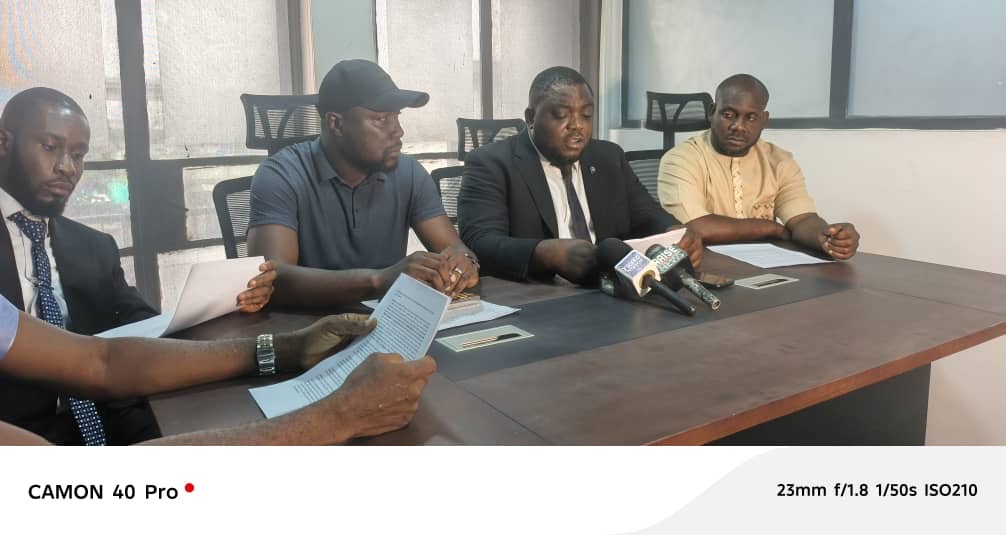
The Youth Forum of Ojomu Royal Family of Ajiran Town in Eti-Osa Local Government Area of Lagos State, has written a petition against the Commissioner of Police in the state, Moshood Jimoh, over the accusations levelled against Hammed Tajudeen.
Speaking at a press briefing in Lagos, the counsel to the Forum, (Adedotun Ajulo, Esq.), said the Lagos State Police Command cannot embark on a media trial in an alleged murder case.
The Forum said the police accused Tajudeen of sponsoring multiple murders without investigation. It stated that at no time was Tajudeen invited by the police for questioning.
It said: “At no time did he refuse or fail to honour any police invitation. At no time was any warrant of arrest issued against him by a court of competent jurisdiction.
“At no time was any judicial authorisation or order obtained to declare him wanted. Despite these concerns, on 20 February 2026, the Commissioner of Police, Lagos State Command, convened a press briefing during which the full image of Alhaji Hammed Tajudeen was displayed and he was publicly accused of sponsoring multiple murders.
“This unilateral and sensational declaration exposed him to public odium, ridicule, and severe reputational harm, all without the benefit of due process or the basic courtesy of an invitation for questioning.
“In the aftermath of the press briefing, hoodlums allegedly sponsored by the opposing parties seized upon the heightened tension to vandalize and destroy properties and assets belonging to Alhaji Hammed Tajudeen, as well as those of other identifiable members of the youth wing who are perceived to be aligned with him.
“These coordinated attacks further underscore the dangerous consequences of deploying the machinery of law enforcement in a manner that inflames communal hostilities rather than preserving public order.
“Subsequently, there has been an overwhelming and intimidating presence of both military personnel and policemen within the community, a development that has served only to further harass, threaten, and denigrate our Clients.
“Meanwhile, the opposing parties continue to enjoy open protection, enabling them to persist in the unchecked dissipation of the community’s common patrimony without resistance or accountability.
“The law is settled. The Administration of Criminal Justice Act, 2015, particularly Section 41, regulates the circumstances under which a citizen may be declared wanted.
“These conditions were not met in this case. Furthermore, the courts have held that the publication of a wanted notice without lawful authority is unconstitutional, illegal, and liable to be set aside.
“We emphasise that our clients are not opposed to lawful investigation. They have consistently cooperated with law enforcement agencies in the past and were previously exonerated after investigations.
“What they strongly oppose is indictment without investigation, trial by media, intimidation, and the use of police machinery to settle private disputes or advance personal interests.
“The issues concerning the Ojomu Royal Family long predate the tenure of the current Commissioner of Police, and it is noteworthy that his predecessors never conducted themselves in a manner suggestive of bias, compromise, or improper influence arising from any promise of advantage or lucre, whether direct or implied.
“Consequently, a formal petition has been submitted against the Lagos State Commissioner of Police and the Lagos State Police Command.
“Among the reliefs sought are the constitution of a special, neutral, and professionally competent investigative team to review the allegations; the prosecution of any persons found to have made false, malicious, or fabricated claims; and a public retraction of the unlawful declaration portraying Alhaji Hammed Tajudeen as a murderer.
“Our Client reiterates his readiness to make himself available for investigation, provided such inquiry is conducted without bias, compromise, or the procedural irregularities presently characterizing the handling of this matter and definitely not by Lagos State Commissioner of Police.
“We trust that the appropriate authorities will urgently intervene to restore confidence in due process, uphold the rule of law, and ensure that policing in Lagos State remains professional, impartial, and accountable.
“More troubling is the fact that such a pronouncement was made in the absence of any invitation, interrogation, or opportunity afforded to Tajudeen to respond to the allegations an omission that gravely offends the tenets of fairness, due process, and responsible policing.
“Furthermore, the conduct of the Commissioner raises serious questions as to whether the machinery of the state is being deployed to settle personal or communal scores rather than to uphold law and order.
“In a democratic society governed by the rule of law, no public officer is permitted to wield statutory powers in a manner that constitutes a media trial or exposes citizens to unwarranted public opprobrium.
“It is against this backdrop that we consider it imperative to address the public and set the records straight, ensuring that the rights and dignity of all parties are preserved while lawful processes are allowed to run their full and proper course.”
news
Maina: Defence Seeks to Quash Charge Before FCT High Court, Alleges Abuse of Court Process

The Defence team representing the former Chairman of the Pension Reform Task Team (PRTT), Dr. Abdulrasheed Abdullahi Maina, has challenged the jurisdiction of the High Court of the Federal Capital Territory (FCT), Abuja, to continue proceedings in Charge No. FCT/HC/CR/24/2019, describing the ongoing prosecution as an abuse of court process.
This follows the filing of a Notice of Preliminary Objection by Counsel to the 1st Defendant, Mr. Emmanuel Umahi Ekwe, supported by an Affidavit and Written Address, urging the Court to decline jurisdiction and quash the charge against the 1st Defendant.
According to the processes filed before the Court, the Defence contends that the present charge arises from the same operational period and transactions relating to pension funds for which the 1st Defendant had previously been tried, convicted, and has served his custodial sentence pursuant to Charge No. FHC/ABJ/CR/258/2019 before the Federal High Court, Abuja.
The Defence maintains that the continuation of the present proceedings after prior conviction and service of sentence in respect of the same underlying transactions amounts to multiple prosecutions arising from the same factual foundation and constitutes an abuse of court process.
In the Written Address filed in support of the objection, Counsel argued that where a proceeding constitutes an abuse of court process, the Court is divested of the jurisdiction to continue with such proceedings, and that the present charge ought to be quashed in its entirety.
The Defence further submitted that the Preliminary Objection raises a fundamental threshold issue as to the competence of the charge before the Court and urged the Court to determine same before taking any further steps in the proceedings so as to avoid subjecting the Defendant to multiple trials in respect of the same underlying transactions.
The Preliminary Objection filed by Counsel to the 1st Defendant reads in part: “An Order of this Honourable Court quashing Charge No. FCT/HC/CR/24/2019 for want of jurisdiction, the same constituting an abuse of court process having arisen from the same set of facts and transactions in respect of which the 1st Defendant had previously been tried, convicted and has served his custodial sentence.”
It further states that: “The continuation of the present charge against the 1st Defendant after prior conviction and service of sentence in respect of the same underlying transactions amounts to multiple prosecutions arising from the same factual foundation and renders the present proceedings incompetent.”
Reacting to recent media reports alleging that the 1st Defendant was evading court proceedings, Counsel to the 1st Defendant and Senior Special Assistant on Media and Protocols to Dr. Maina, Barr. Emmanuel Umahi Ekwe, described the publications as misleading and malicious, insisting that the matter currently being circulated in the media is the same case originally filed in 2019 which had already been heard and disposed of.
He further stated that the recent filing by another prosecuting counsel amounts to a duplication of a matter already adjudicated upon, which constitutes double jeopardy and an abuse of court process.
Barr. Ekwe also maintained that there was no refusal on the part of the 1st Defendant to attend court proceedings, stating that Dr. Maina is presently hospitalised — a fact known to the court — and for which medical documentation had been duly presented.
He added that the renewed proceedings coincided with recent public demands for accountability in respect of approximately ₦1.3 trillion in cash and about 227 properties allegedly recovered during pension reform recovery operations carried out during Dr. Maina’s tenure, and called on the Federal Government and relevant oversight institutions to conduct an independent forensic audit of all assets and funds recovered under the pension reform investigations.
The case has been adjourned to 26th February 2026 for continuation of trial-within-trial.
news
Journalists for Good Governance Shines Searchlight on Local Government Administration

Journalists for Good Governance Shines Searchlight on Local Government Administration
…Calls for Accountability in Nigeria’s Grassroots Governance
LAGOS, Nigeria — A civil society coalition known as Journalists for Good Governance(JGG) has intensified public debate on transparency and accountability within Nigeria’s local government system, urging media professionals, civil society actors, and citizens to hold grassroots leaders accountable.
Speaking an event in Lagos recently, the acting chairman of the society, Comrade Bunmi Obarotimi said that despite reforms such as the Supreme Court’s 2024 ruling granting financial autonomy to all 774 Local Government Areas (LGAs), systemic challenges continues to hinder effective service delivery and responsible stewardship of public funds.
“Local governments are the closest tier of government to the people — yet too often they remain the least transparent. Without civic oversight and vibrant media, promises of autonomy ring hollow.” the acting chairman said.
The Journalist for Good Governance emphasised crucial roles that journalists can play in uncovering discrepancies in council spending, flagging poor service delivery, and educating citizens on their rights. Their call comes amid wider efforts by media and civic organisations to bridge accountability gaps. The civil society initiatives had previously launched monitoring campaigns to track local government expenditures and have been quietly advocating for transparency in how public money is deployed.
The leaders of the Journalists for Good Governance (JGG) highlighted the importance of physical assessment and citizens engagement on projects to boost people’s confidence, urging local councils to adopt open data platforms and proactive information dissemination in compliance with the Freedom of Information Act. Experts say the majority of LGAs currently lack operational websites or digital portals, further limiting public scrutiny.
The Journalists for Good Governance initiative aligns with sustained advocacy by civil society groups and governance experts calling for a collective approach to strengthening democratic accountability, and has decided to engage in critical and holistic assessments of how Local Governments is being run and the impact and quality of projects they embark-on and to address deficits in transparency and public trust.
Meanwhile, some state governments have signalled support for improved community engagement. In Lagos State, authorities reiterated a commitment to enhancing community media platforms as vehicles for civic participation and accountability at the grassroots level.
The renewed spotlight on local government administration has reignited public debate over fiscal responsibility and priorities. Controversies such as the widely criticised Adamawa council chairmen’s wives trip to Istanbul — which drew public outrage for perceived misuse of public funds — underscore why watchdog groups say stronger oversight mechanisms are urgently needed at the grassroots.
Citizens and activists have welcomed the journalists’ initiative, calling for sustained media engagement that goes beyond headlines to influence policy and accountability reform.
The civic rights advocates note that real change will require robust legal frameworks, a free press, and empowered communities equipped to demand transparency at every level of governance.
As Journalists for Good Governance mobilises its members, the coming months are likely to see heightened media attention on grassroots administration — from council budgets and service delivery to the enforcement of public information laws and digital transparency initiatives.
-

 celebrity radar - gossips6 months ago
celebrity radar - gossips6 months agoWhy Babangida’s Hilltop Home Became Nigeria’s Political “Mecca”
-

 society5 months ago
society5 months agoReligion: Africa’s Oldest Weapon of Enslavement and the Forgotten Truth
-

 society6 months ago
society6 months agoPower is a Loan, Not a Possession: The Sacred Duty of Planting People
-

 news7 months ago
news7 months agoTHE APPOINTMENT OF WASIU AYINDE BY THE FEDERAL GOVERNMENT AS AN AMBASSADOR SOUNDS EMBARRASSING



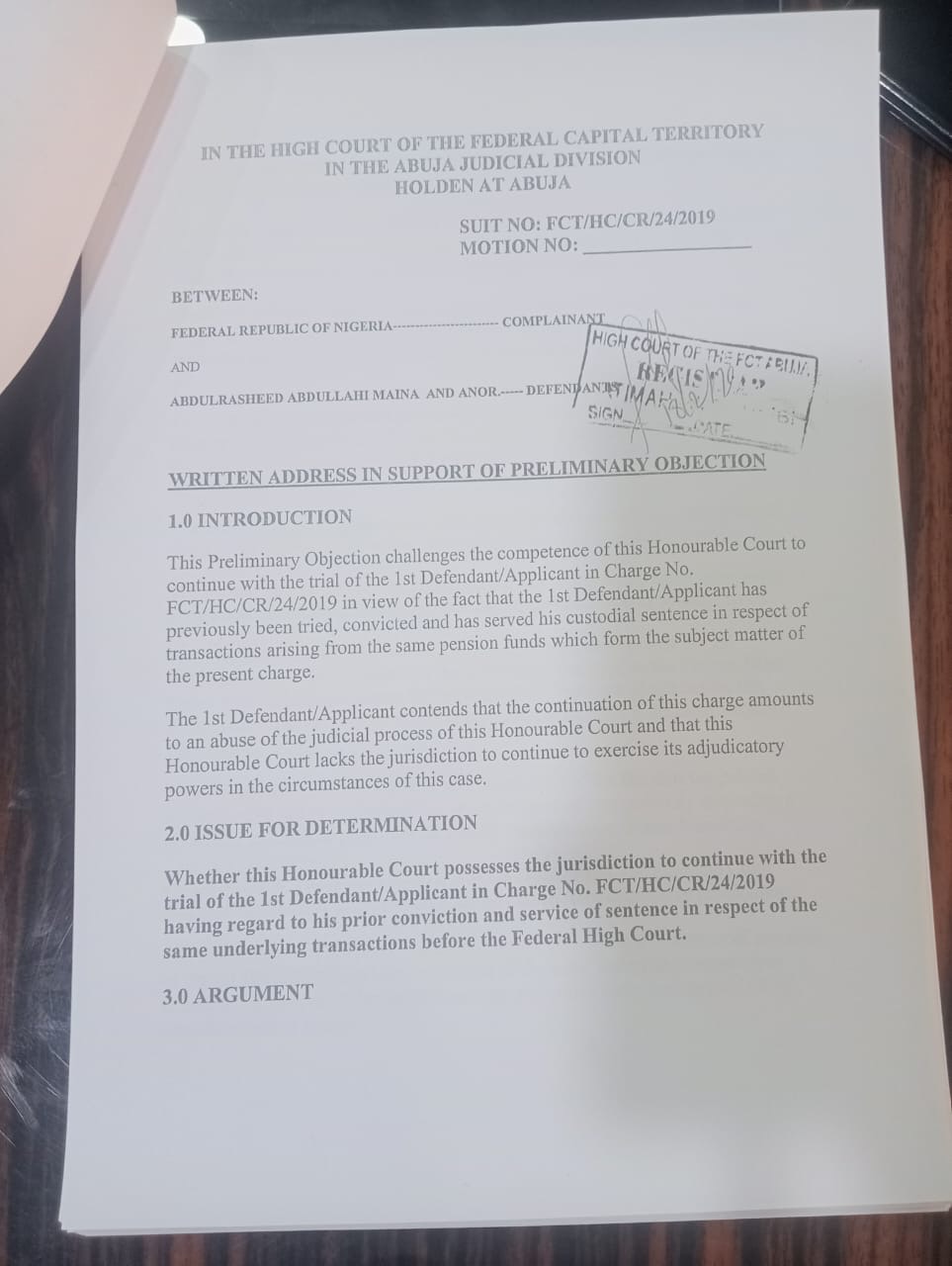
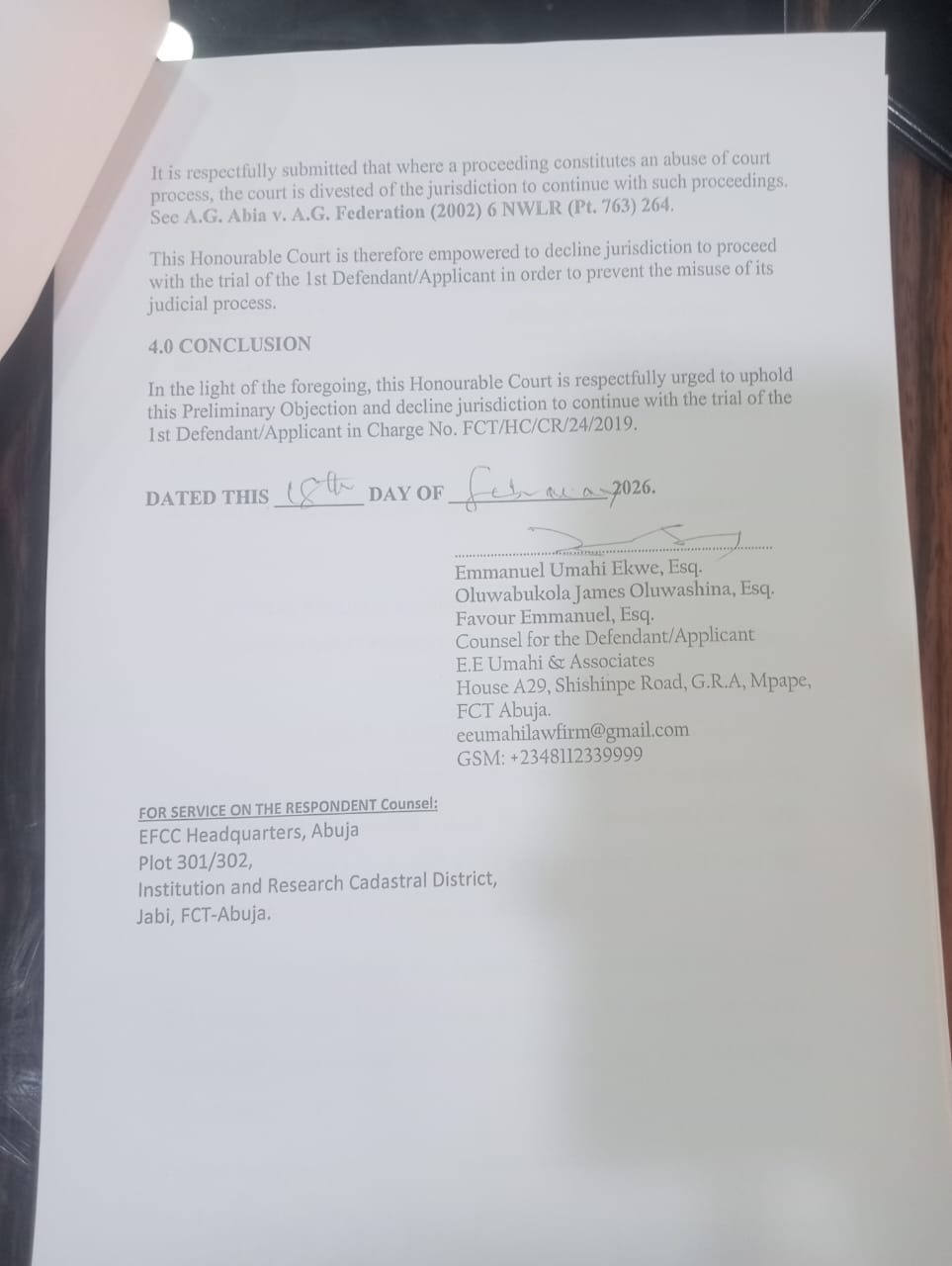
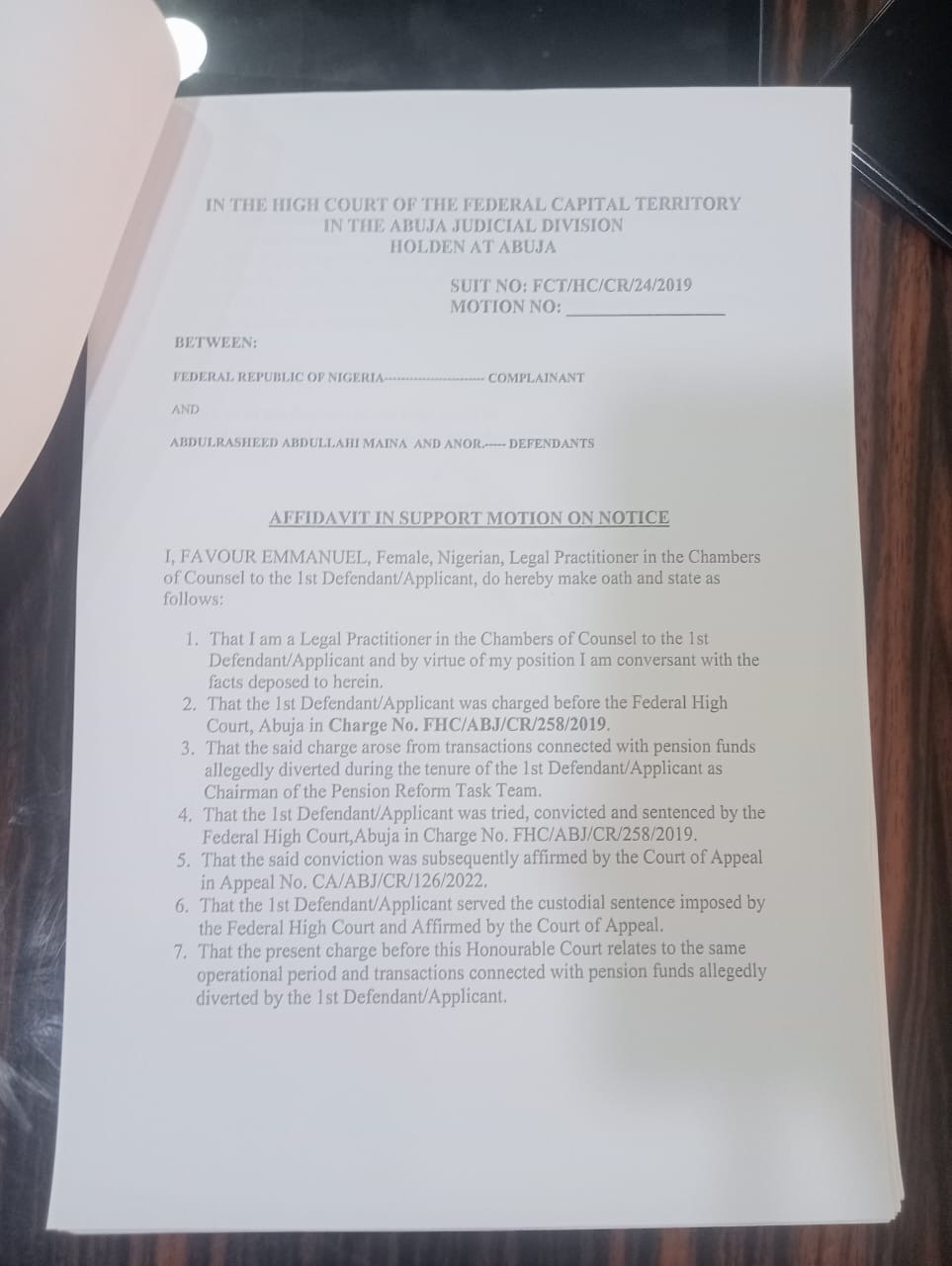
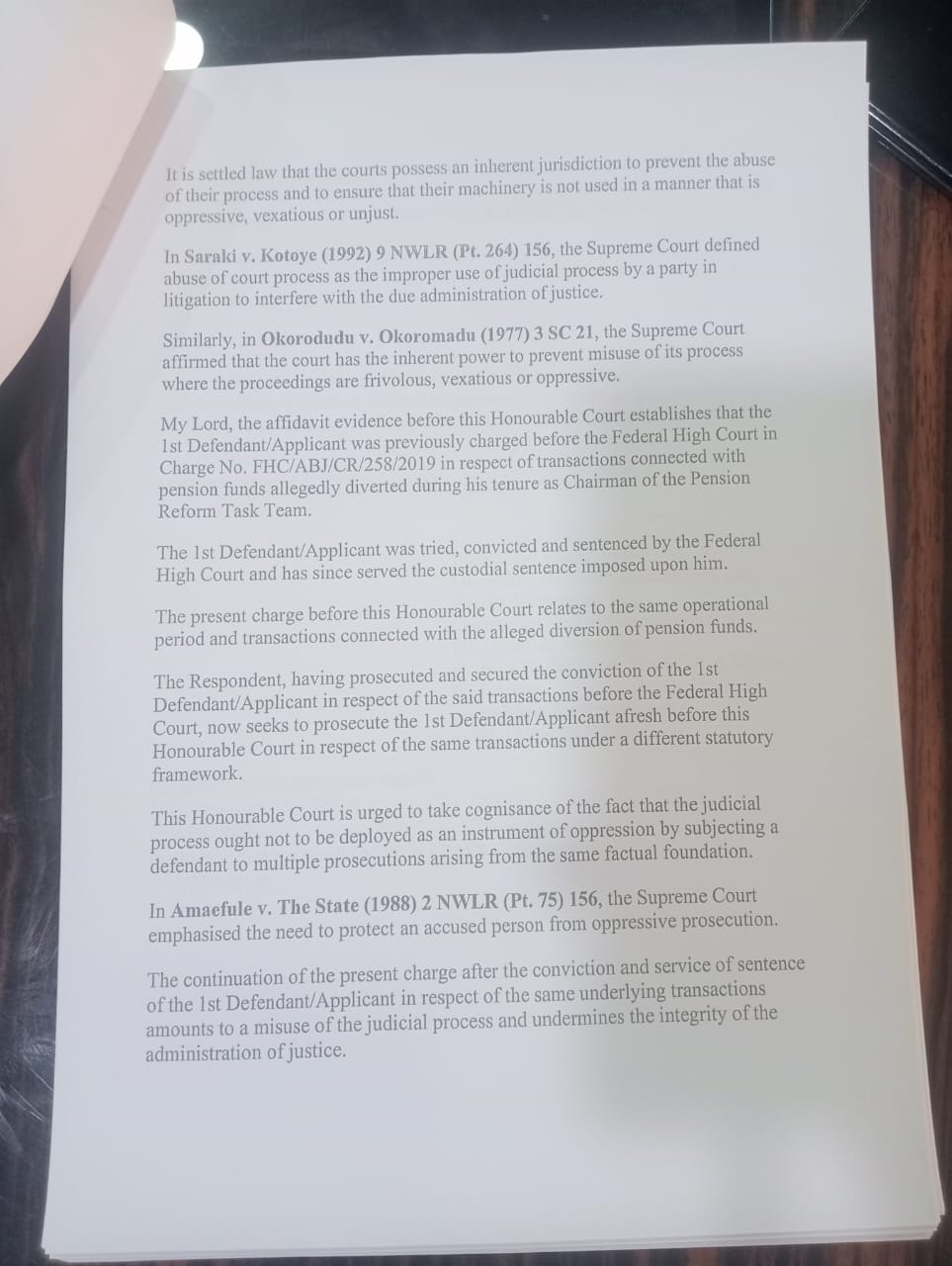

You must be logged in to post a comment Login